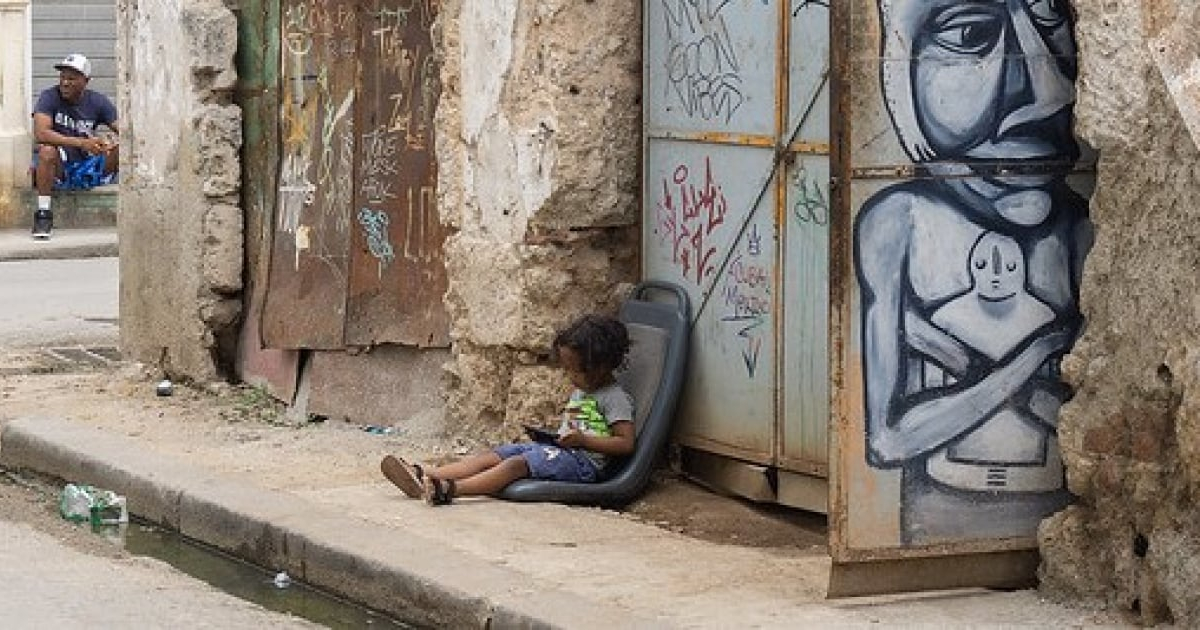
The Central Bank of Cuba (BBC) asked families to teach children at home to save.
According to a post on his accountFacebook, financial education does not only depend on the knowledge they acquire at school.
"Encourage the habit of saving from home," he said.
Dozens of Internet users criticized the publication and reminded the bank of the situation in the country, where salaries are not enough to face the high prices of basic products and it is impossible to save anything.
"This post looks like a meme.To be able to save, your salary should first reach"said a man from Holguín.
"What we have to do is teach them to find a way to get out of the country while this scamming government is in power," said a private worker.
"Save in dollars, because the peso is a dead letter," said a young man.
A lawyer recalled that Cuban schools do not teach financial education classes to children, and that what they really need is for the curricula to be cleaned up and "all the Marxist verbiage, which only serves to idiotize and disable students," to be eliminated. students".
"'From each according to his abilities, to each according to his needs.' Let them tell it tothe teachers themselves, whose monthly salaries are equivalent to two cartons of eggs"he added.
A self-employed person assured that the best thing isteach children that no matter how much they study, "the salary will never be enough".
A parent stated that Cuban children learn only one thing from the time they are babies: "to want to emigrate!"
Other users recalled how the BCC betrayed the trust of those who deposited their savings in it, byconvert CUC accounts into certificates of deposits in dollars or euros without any backup, and the only option it offers to these people is to extract their money in national currency at a rate of 120 CUP per dollar, well below the value in the informal market.
"What we have to teach children is to protect themselves from banks and not trust you, who don't just return thedollars and euros that were stolen more than three years ago from those who had foreign currency accounts in Banco Metropolitano S.A., in which the State deposited in a directed and controlled manner a part of the salary they earned for years in missions abroad...", stressed one man.
"With the euphemistically called 'ordering' - by decision of the Central Bank of Cuba - disrespecting the signed contracts, they were scammed by seizing said coins without prior notice and as a consolation they were given a certificate of deposit until the country had 'availability' of them. But it has been more than three years since this dispossession and for some time now the State has been selling and buying dollars and euros, which means that such availability already exists...", he stated.
This week the Central Bank of Cuba reiterated to the population that,Given the recurring shortage of money at ATMs, go to the warehouses or to other establishments of the Ministry of Internal Trade (MINCIN) to withdraw cash from their bank accounts through the "Extra Cash" service.
The system was approved since September 2021, but apparently it has not had the expected follow-up. It requires installing the EnZona application and allows you to withdraw up to 5,000 Cuban pesos by scanning a QR code.
The service, the result of a collaboration between Cuban banks and the MINCIN, exposes the paradox of not having what to buy in a warehouse and at the same time using it as an ATM.
ATMs almost never have money available and the amounts that can be accessed from the Caja Extra service are very small, because although the limit is 5,000 CUP, in practice they can rarely dispense that amount.
What do you think?
COMMENTFiled in: